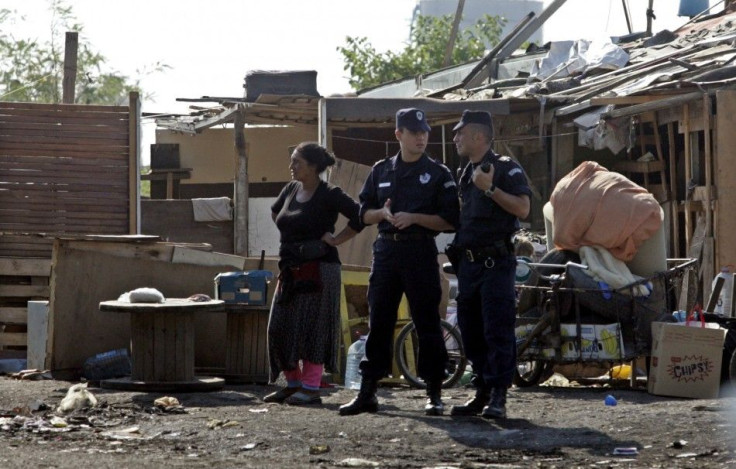Roma Families Forced Out of Their Serbian Homes

Serbian authorities evicted five Roma families from their Belgrade homes Thursday, leaving about 20 people homeless, including 10 children.
Living in a building on Skadarska Street in the Serbian capital, the Gypsies were forcibly removed from their residences without being offered "adequate alternative housing." The families were told to remove all of their possessions from the building.
A June 29 court order legalized the action, which human rights organizations have quickly condemned.
The Roma, also known as the Romani or Gypsies, form an ethnic group widely dispersed across Europe. Traditionally a traveling community with its roots traced to India, the Romani peoples are oft subject to extreme, institutionalized persecution.
“Once again, authorities in Belgrade are uprooting Roma families and pushing them out on the streets without providing adequate alternative housing,” Nicola Duckworth, Amnesty International’s Europe and Central Asia Program Director, said in a press release.
“This unacceptable practice must not continue, and the authorities must do more to seek out adequate housing solutions to ensure Roma families can bring up their children in safety and with dignity.”
According to an Amnesty report, Serbia has been violating international standards on forced evictions since 2009, and the government has failed to protect the human rights of evicted persons. There are anywhere between 250,000 to 500,000 Roma in the country, including about 40,000 who escaped from Kosovo in 1999.
Facing de facto discrimination in most European countries, the Gypsy community is economically troubled, and many Romani live in slums, shanty-towns or in substandard housing. This is true in Serbia, and in Belgrade there are as many as 100 informal settlements spread across the city. More than one third of the Gypsies in the capital live in these communities.
In the past, these settlements have been subject to forced eviction and displacement all across Europe.
Last year, the Romanian city of Cluj-Napoca evicted 56 Romani families from their homes in the city center without giving them sufficient advanced notice. In June, Roma were relocated in the Czech Republic, and in April three Gypsy communities were evicted outside of Rome.
Last month, the local government of the city of Baia Mare in northern Romania announced it's plans to erect a concrete wall in front of a Roma neighborhood. The wall would separate the community from a main road, and human rights groups are saying that it is a government instituted attempt to "ghettoize" an ethnic community.
"Such initiatives belong to the Nazi era," the Center for Legal Resources said in an open letter to Baia Mare mayor Catalin Chereches.
"The idea to separate a community with severe social problems... amounts to institutionalized racism."
© Copyright IBTimes 2024. All rights reserved.











